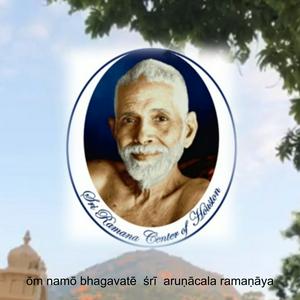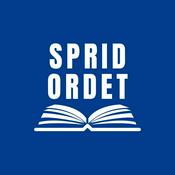342 avsnitt

Uḷḷadu Nāṟpadu Anubandham verse 37
2025-12-16 | 2 h 3 min.
In an online meeting with Sri Ramana Center, Houston, on 6th December 2025, Michael James discusses Uḷḷadu Nāṟpadu Anubandham, verse 37. This episode can be watched as a video on our advertisement-free Vimeo channel or on YouTube. A compressed audio copy in Opus format can be downloaded from MediaFire. Books by Sri Sadhu Om and Michael James that are currently available on Amazon: By Sri Sadhu Om: ► The Path of Sri Ramana (English) By Michael James: ► Happiness and Art of Being (English) ► Lyckan och Varandets Konst (Swedish) ► Anma-Viddai (English) Above books are also available in other regional Amazon marketplaces worldwide. - Sri Ramana Center of Houston

To investigate ourself effectively we need subtle understanding
2025-12-14 | 2 h 6 min.
In an online meeting with the Chicago Ramana devotees on 30th November 2025, Michael answers various questions about the teachings of Bhagavan Ramana. This episode can be watched as a video on YouTube. A more compressed audio copy in Opus format can be downloaded from MediaFire. Songs of Sri Sadhu Om with English translations can be accessed on our Vimeo video channel. Books by Sri Sadhu Om and Michael James that are currently available on Amazon: By Sri Sadhu Om: ► The Path of Sri Ramana (English) By Michael James: ► Happiness and Art of Being (English) ► Lyckan och Varandets Konst (Swedish) ► Anma-Viddai (English) Above books are also available in other regional Amazon marketplaces worldwide. - Sri Ramana Center of Houston

Guru Vācaka Kōvai verses 579, 647, 589, 586 and 588
2025-12-06 | 2 h 3 min.
In an online meeting with the Ramana Maharshi Foundation UK on 29th November 2025, Michael answers on Bhagavan Ramana's teachings. This episode can be watched as a video on YouTube. A more compressed audio copy in Opus format can be downloaded from MediaFire. Michael's explanations on the original works of Bhagavan can be watched free of advertisements on our Vimeo video channel. Books by Sri Sadhu Om and Michael James that are currently available on Amazon: By Sri Sadhu Om: ► The Path of Sri Ramana (English) By Michael James: ► Happiness and Art of Being (English) ► Lyckan och Varandets Konst (Swedish) ► Anma-Viddai (English) Above books are also available in other regional Amazon marketplaces worldwide. - Sri Ramana Center of Houston

Ego alone is the experiencer of all phenomena
2025-12-02 | 2 h 44 min.
In an online meeting with the Ramana Maharshi Foundation UK on 8th November 2025, Michael answers on Bhagavan Ramana's teachings. This episode can be watched as a video on YouTube. A more compressed audio copy in Opus format can be downloaded from MediaFire. Michael's explanations on the original works of Bhagavan can be watched free of advertisements on our Vimeo video channel. Books by Sri Sadhu Om and Michael James that are currently available on Amazon: By Sri Sadhu Om: ► The Path of Sri Ramana (English) By Michael James: ► Happiness and Art of Being (English) ► Lyckan och Varandets Konst (Swedish) ► Anma-Viddai (English) Above books are also available in other regional Amazon marketplaces worldwide. - Sri Ramana Center of Houston

We are just one ‘I’, the light that dispels all darkness
2025-11-26 | 1 h 57 min.
In an online meeting with the San Diego Ramana Satsang ([email protected]) on 2nd November 2025, Michael answers various questions about Bhagavan’s teachings. This episode can be watched as a video on YouTube. A more compressed audio copy in Opus format can be downloaded from MediaFire. Advertisement-free videos on the original writings of Bhagavan Ramana with explanations by Michael James can be accessed on our Vimeo video channel. Books by Sri Sadhu Om and Michael James that are currently available on Amazon: By Sri Sadhu Om: ► The Path of Sri Ramana (English) By Michael James: ► Happiness and Art of Being (English) ► Lyckan och Varandets Konst (Swedish) ► Anma-Viddai (English) Above books are also available in other regional Amazon marketplaces worldwide. - Sri Ramana Center of Houston
Fler podcasts i Religion och spiritualitet
Trendiga poddar i Religion och spiritualitet
Om Sri Ramana Teachings
Lyssna på Sri Ramana Teachings, The Bible in a Year (with Fr. Mike Schmitz) och många andra poddar från världens alla hörn med radio.se-appen

Hämta den kostnadsfria radio.se-appen
- Bokmärk stationer och podcasts
- Strömma via Wi-Fi eller Bluetooth
- Stödjer Carplay & Android Auto
- Många andra appfunktioner
Hämta den kostnadsfria radio.se-appen
- Bokmärk stationer och podcasts
- Strömma via Wi-Fi eller Bluetooth
- Stödjer Carplay & Android Auto
- Många andra appfunktioner


Sri Ramana Teachings
ladda ner appen,
börja lyssna.





















